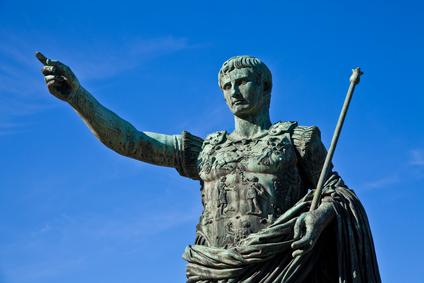Strategy is all about choice and we can look to some useful role models who typify three different strategies; Masterly Inaction, Revolution and Game Change. Your coach can help you choose.
1. Masterly Inaction
Fabius Maximus, known as the Procrastinator, was a Roman General who defeated Hannibal in the second century BC. He refused to engage in direct battle and pursued an opportunistic strategy of harassing skirmishes and disruption of supply lines to give his own side time to gain strength and to exhaust his enemy. The strategy was successful but unpopular at the time because it was seen as passive.
Modern business leaders face the same challenge. After all, leaders are expected to “do something” and waiting and seeing can look like weakness or helplessness. But sometimes masterly inaction is the right strategy and engaging with every threat is a sucker’s game. Modern business life is cursed with information overload. How can we differentiate the noise from the signal, particularly when the media hypes sensationalist stories? A glance at the reporting on house price boom and house-price bust, which tend to alternate every few months is a good case in point. Perceived threats may turn out to be groundless, or responding on your competitors terms might bring more advantages to them than you. Sometimes, inaction is best, as long as it is masterly, i.e. informed and considered.
The book for you: Antifragile, by Nassim Nicholas Taleb: How to avoid being a fragile victim of volatility by being antifragile enough to get more upside than downside out of change.
How your coach can help: Your coach will help you to manage emotional responses to threats, see alternative scenarios, and help you to communicate strategy and hold your nerve.
2. Revolution
Jeff Bezos was confident enough about the opportunities arising from the growth in internet use that he quit his well-paying job at a hedge fund and set up Amazon. He used a new technology to revolutionise the way that books are sold. It has been reported that in 2012 the sale of books on-line exceeded those in-store. So a revolution in the way of doing business can contribute to a winning strategy. Other examples include Jack Cohen of Tesco introducing self-service supermarkets in the 1940s and the jet engine paving the way for mass tourism by reducing cost per customer. The revolutionary sees a need for a process or product to change or discovers an external solution which can be adopted into the business model. Again, the leader needs to display strength of resolve against gainsayers, in this case, those invested in the status-quo.
The book for you: The Tipping Point by Malcolm Gladwell. Master the power of the few, making change sticky and the power of context to deliver big change.
How your coach can help: Your coach will help you identify your SMART goals, gather the internal and external resources you need and help you evaluate progress and modify plans accordingly.
3. Game Change
Moving to fiction: In Star Trek, Captain Kirk faced a test in training of the Kobayashi Maru game in which it was impossible to win. The game was intended to be a test of character to see how candidates behaved when faced with certain death. Kirk’s response was to hack the computer and change the parameters of the game so that it was possible to win. Game theorists refer to this as a no-win scenario, where the best strategy is to redefine the problem or change the rules of the game. Business examples include Paypal, which was originally set up as a cryptography firm before redefining itself as a payment processor, and Gap, which was originally set up to sell records with jeans as a sideline. If your business can’t succeed in its original purpose, it’s time to revisit the heart and purpose of your business and ask, why are we here?
The book for you: The Creative Thinking Plan by Guy Claxton and Bill Lucas. Help in generating new ideas and solutions.
How your coach can help: It’s hard to see the way things are because they become so internalised. As an outsider your coach will make you aware of your assumptions and challenge you to transcend them.
So who is your strategy hero, Fabius Maximus, Jeff Bezos or Captain Kirk? Give us a call at Creative Vectors Coaching and we’ll help you choose.



